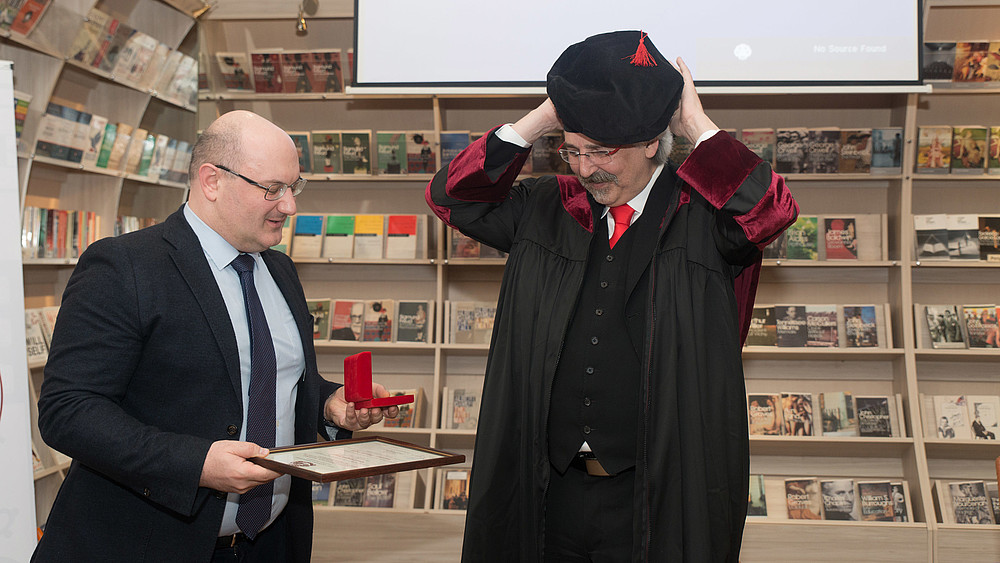Görlitz university lecturer is made an honorary Doctor of Laws for services to cultural law.

In recognition of his services to cultural law, theIlia State University of Tbilisiawarded the Görlitz professor Matthias Theodor Vogt the title of aDoctor iuris honoris causaan honorary doctor of law. State Secretary Uwe Gaul from the Saxon State Ministry of Science and the Arts congratulated him with the words: "This honor shows that your achievements in the field of cultural policy are recognized far beyond the borders of the state. I wish you continued success in your responsible work".
Matthias Theodor Vogt developed the concept of the Saxon Cultural Areas Act from 1992-1995 and played a leading role in its implementation. He has been Director of the Institute for Cultural Infrastructure Saxony since 1994 and has been teaching cultural policy, cultural history and intercultural cooperation at the Görlitz Faculty of Managerial and Cultural Studies at the Zittau/Görlitz University of Applied Sciences since 1997. He is one of only two university lecturers in Saxony currently appointed in the field of interculturality.
Vogt's particular concern as a university lecturer is to explore the cultural diversity of Central, Eastern and Southern Europe through excursions, summer schools, art projects, research and, of course, in lectures and seminars, in order to actively help build the "House of Europe" together with the students. He is the author of numerous studies on the cultural prerequisites for strengthening democratic potential in Europe. The University of Pécs appointed him Professor honoris causa in 2012 and the Republic of Poland made him an Officer of the Polish Order of Merit in 2014 in recognition of his commitment to German-Polish cooperation.
Currently, Vogt's main interest is the question of how Saxony and the rest of Germany can master the transformation into a country of immigration (among other such countries of immigration, transit and emigration). How can Germany do justice to the concern for successful coexistence in the face of an increasing diversity of origin, tradition, culture and religion in our political community, without falling prey to the pop culture of a singular national culture? (See Vogt, Matthias Theodor:Die Ankommenden. Social cohesion and (cultural) integration. In: German Cultural Council: Politics & Culture 2/17, p. 33)
Vogt's speech in Tbilisi addressed the question: To what extent do studies on interculturality require an interdisciplinary approach? His answer (which you can read herehere) is: It depends on who defines the singular and how this is done!